From the architect:
123 House seeks to provide my clients and the local community with a new building that sits comfortably in the suburb, as though this building has been born from its surroundings.
My clients owned and ran an Ampol service station on this site for thirty years before decommissioning the service station and subdividing the site while maintaining the site on the corner for themselves. With the local community fondly remembering their service, memory of the former petrol station is embodied in the building fabric through various means such as the detailed concrete projections which reference the old Ampol logo, the use of coloured glass which references the colours of petrol and engine oil, the balustrade inspired by the spokes of a car wheel and the letterbox that wobbles upon a vehicle suspension spring to the delight of the owners and the postie.
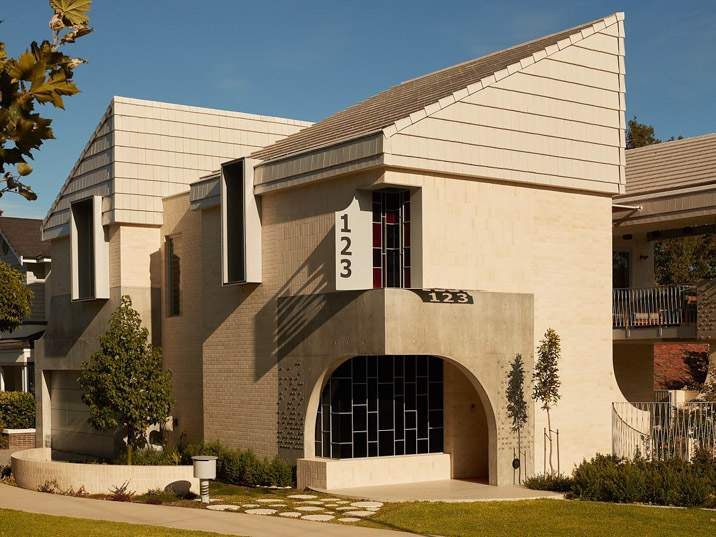
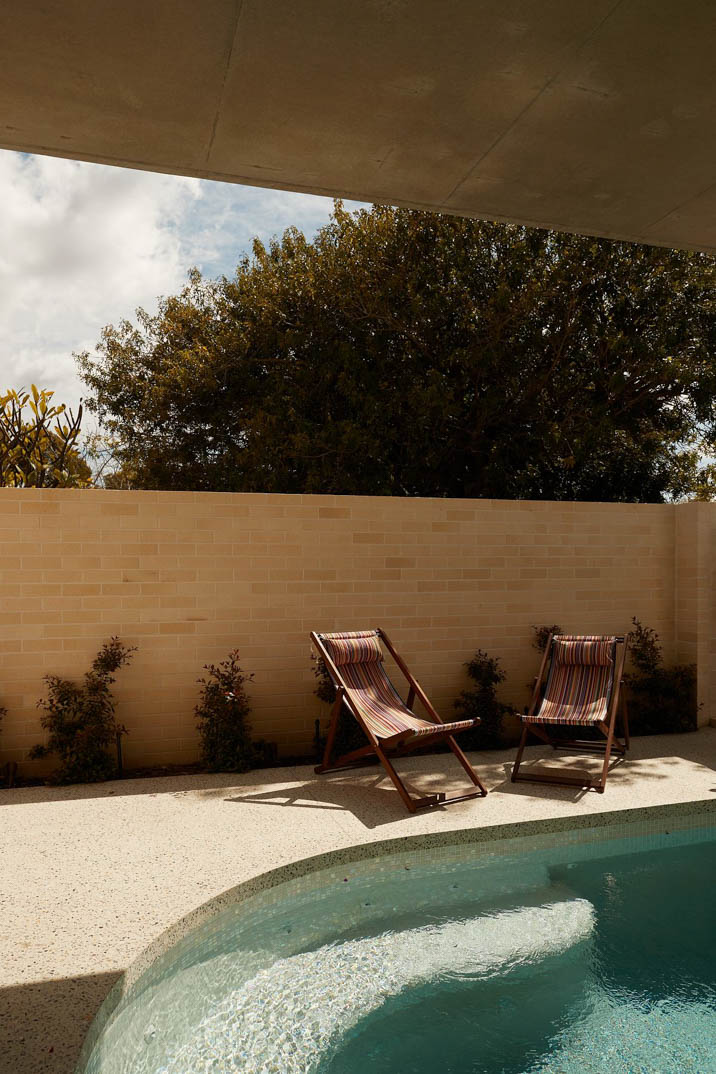
The site is in a transitional zone at higher density that sits between the commercial buildings opposite and the larger traditional residential sites. We sought to connect this new building with the many examples of two-story walk-up apartment buildings that resemble enlarged houses from the 1930’s post-depression building period within Nedlands. These buildings are predominantly situated on prominent corner sites where the building mass hugs the front boundaries of the site.
The orientation of the house provides maximum environmental benefit to the owners indoor living and alfresco environments with these spaces situated at the first floor where controlled northern light has opportunity to filter into the house during the winter months.
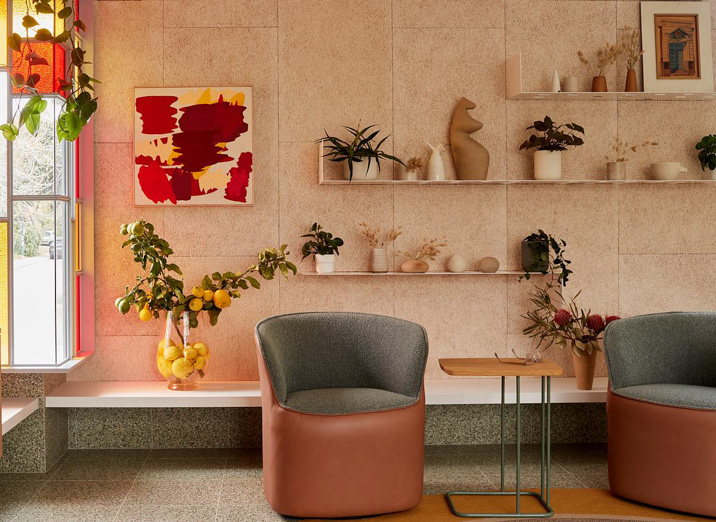
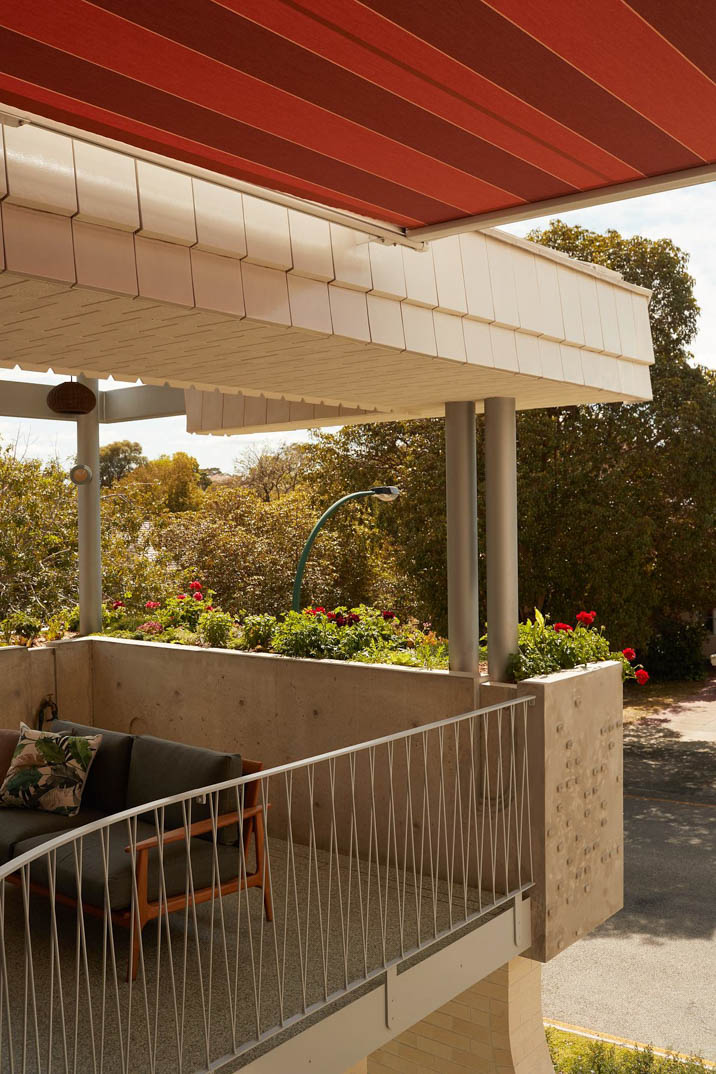
The roof scape and building mass are articulated to provide the buildings external expression as a series of components that address both street frontages. This articulation also allows multiple highlight windows central to the house providing natural light and excellent cross-ventilation, bringing joy to unexpected locations.
The first-floor alfresco area provides a sense of security and greater outlook through its elevated position on the compact site above the busy street while allowing owner interaction with the local community.
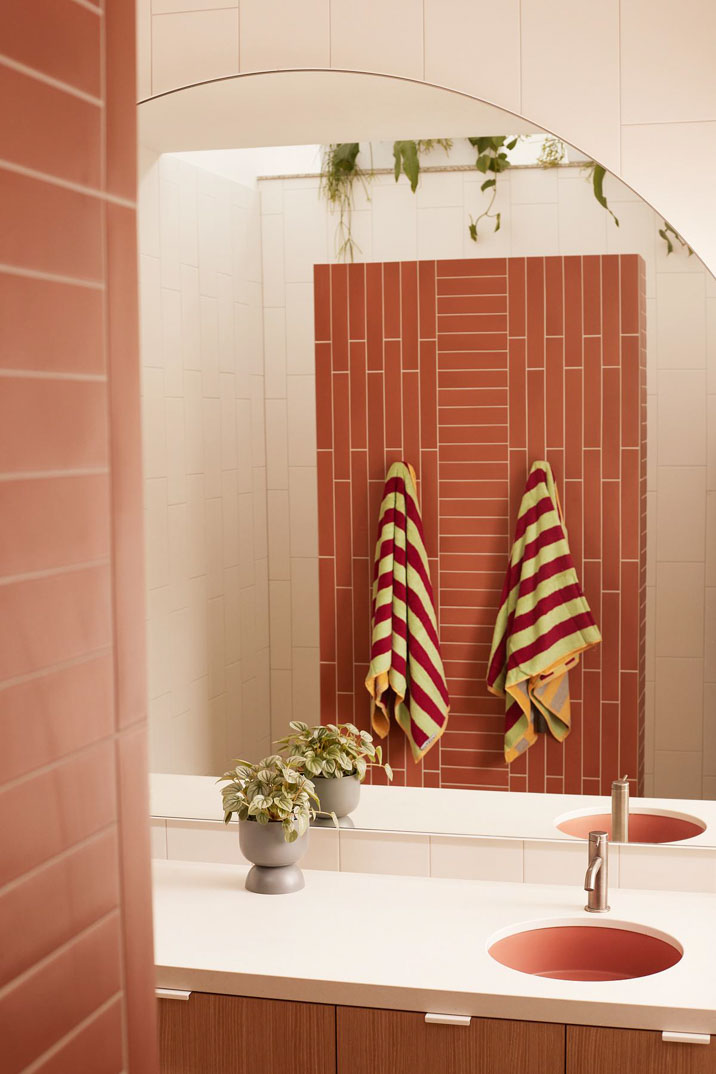
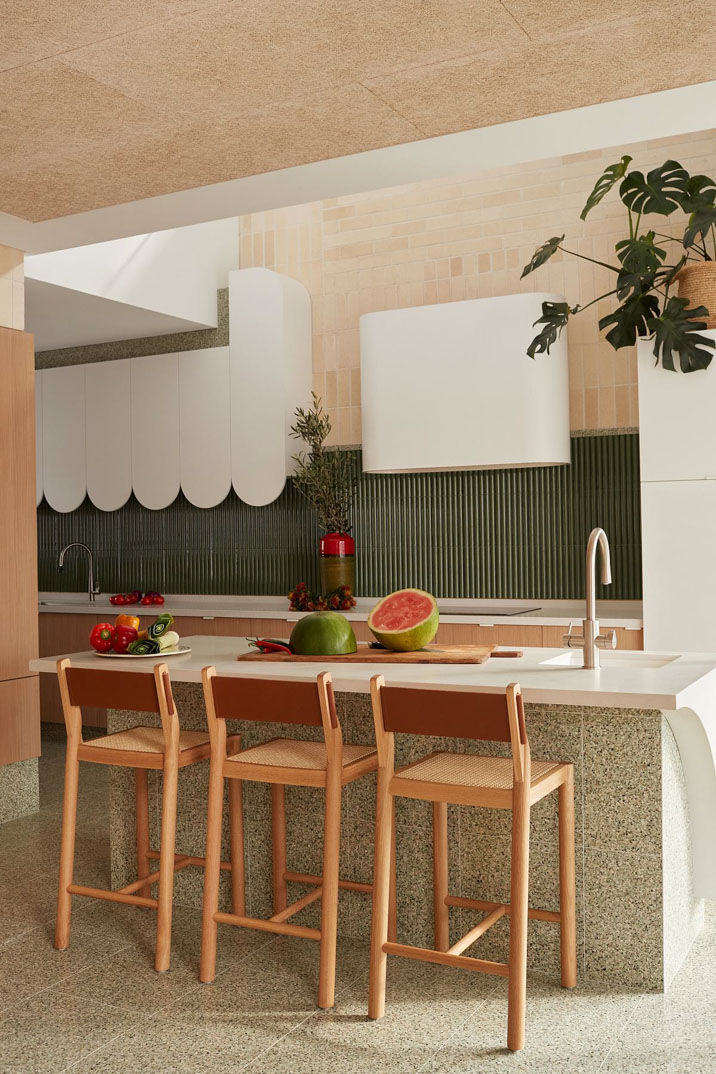
The house features wall profiles, voids, balustrades, cabinetwork and ceilings at radius, taking their cue as graphic parts of the many arch forms found throughout the existing built form in the suburb of Nedlands.
Honest expression of function as off-form concrete elements show where they are working structurally, and changes in brick bonding creates construction joints. Glazed terracotta roof tiles visually connect with the terracotta roof tiles of adjacent houses in the neighbourhood while allowing the roofscape to appear as a series of sculptural elements rather than a utilitarian roof.
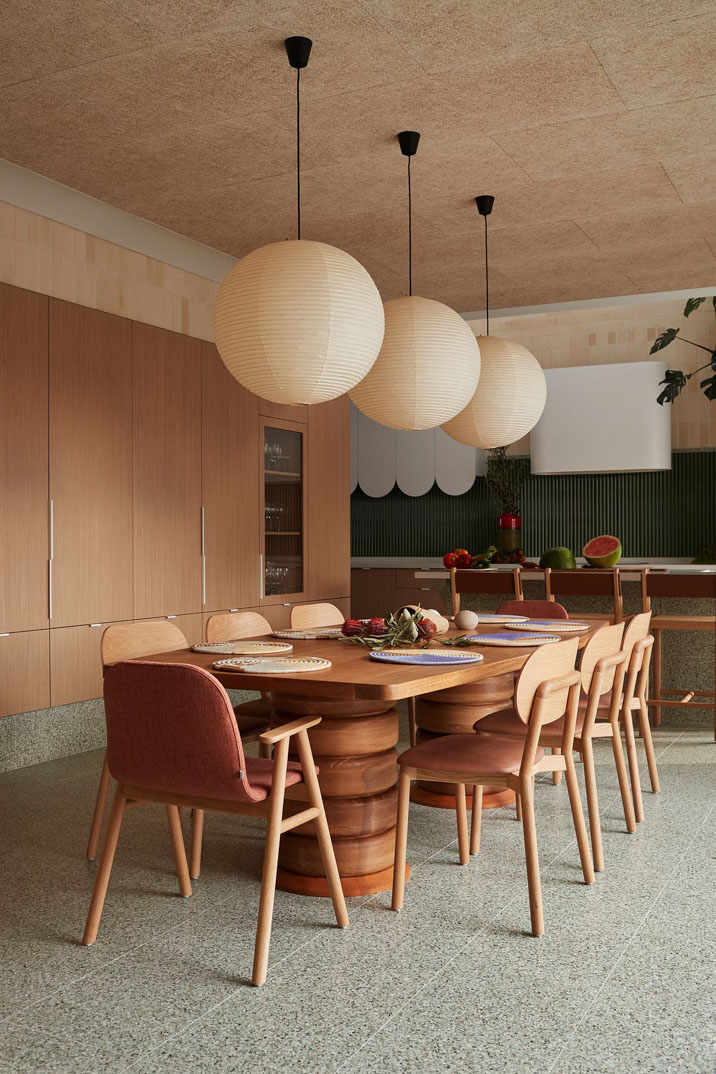
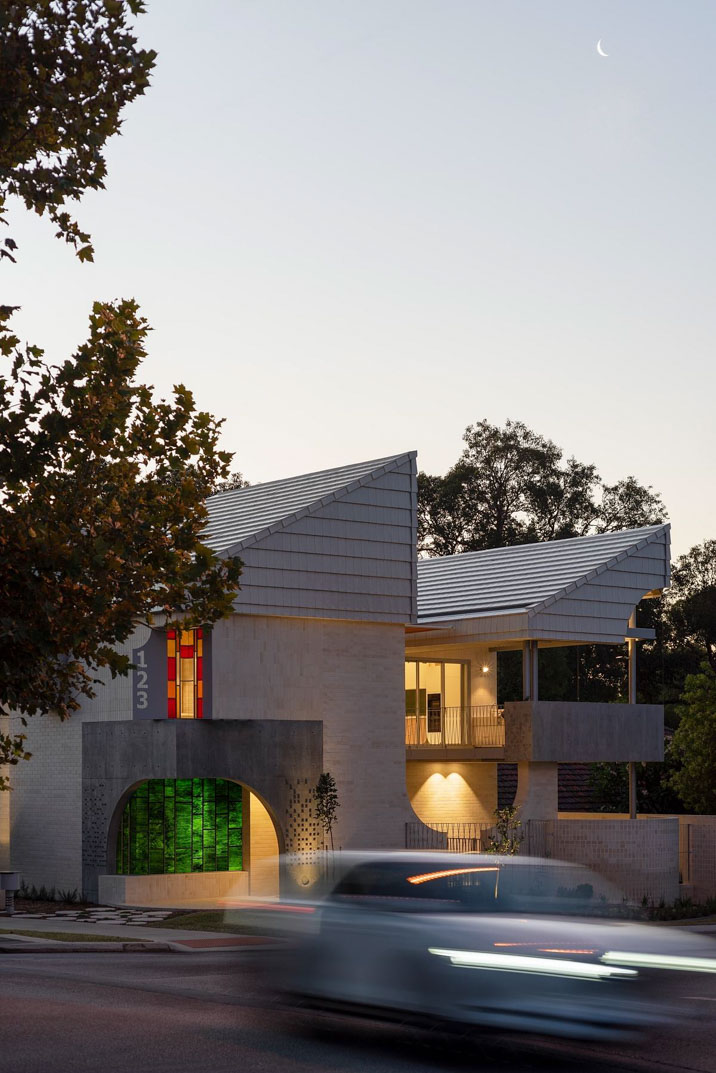
The textures and feel of the house are intended to provide the owners with an emotional connection to the Mediterranean and their own Greek heritage. Colourful terrazzo floor tiles are a unifying base in their expression of colour and balance the coloured windows, with coloured glass being a component of the client’s brief. Sandy coloured textural brickwork and the natural finish of the acoustic textured board soften the interior spaces and provide a neutral backdrop with textural variation.

